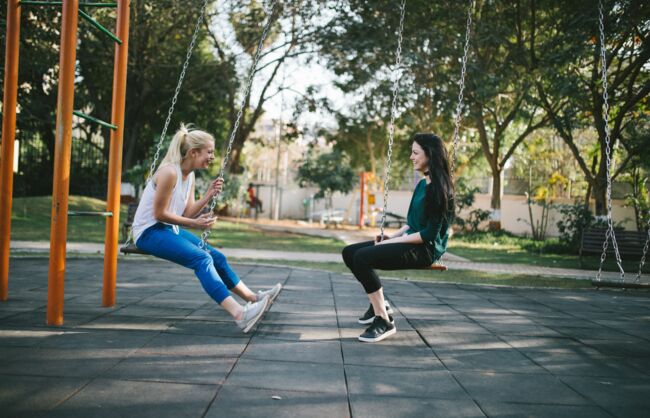HPV Vaccine

HPV Vaccine
Why get vaccinated against HPV?
Human papillomavirus (HPV) is one of the world’s most widespread viral infections. It is easily passed on from person to person, and without vaccination almost everyone will come into contact with it at some point in their life.
HPV for the majority of the population is not a case of if, but when, you get it.
The HPV vaccine prevents a person from HPV types that cause several cancers, including:
- Cervical cancer
- Vaginal and vulval cancers
- Anal cancer
- Throat cancer
- Penile cancer
There is currently no available effective screening or testing for anal, vulval, penile or throat HPV-related infections or cancers, as there is no swab or blood test that can check for all HPV types and also because, in some people, the virus is "hibernating" at levels that are not detectable by testing. Therefore vaccination, ideally before ever having sex, is highly recommended and is the most effective way of preventing HPV.
The HPV vaccine also prevents HPV types that cause genital warts and will prevent most cases of genital warts.
Vaccination is not a substitute for cervical screening. This vaccine protects against most, but not all, HPV types that cause cervical cancer. All people with a cervix should still have regular cervical screening.
When should vaccination occur?
Vaccination is most effective when given prior to HPV infection i.e. before becoming sexually active. For people who are already sexually active, the vaccine may still be of benefit. This is because there are many strains of HPV. The vaccine can still protect us against those strains (that the vaccine covers) that we haven't yet been exposed to.
How effective is the HPV Vaccine?
It is highly effective.
Almost all HPV infections that cause abnormal cells and cancer can be prevented by the HPV vaccine.
The HPV Vaccine (Gardasil 9) targets the types of HPV responsible for around 90 percent of cervical and other HPV-related cancers, and 90 percent genital warts. Clinical trials show it is highly effective in preventing these types of HPV in young people who have not previously been exposed to them.
How safe is the vaccine?
The vaccine is very safe and no different from other common vaccines. The most common side effect is soreness at the injection site. Millions of doses have now been given all over the world. As for all medicines and vaccines, ongoing surveillance continues to monitor safety.
The Medsafe website has further information about Gardasil 9.
What is in the HPV Vaccine?
The HPV vaccine used in the New Zealand Immunisation Programme from 2017 is Gardasil® 9. The vaccine contains HPV virus-like particles (VLPs) of HPV types 6, 11, 16, 18, 31, 33, 45, 52 and 58. These particles are proteins from the outer shell of the virus. The VLPs do not contain DNA fragments in a form that could allow them to infect cells or reproduce. The particles mimic the HPV virus so that the immune system makes antibodies against it. These recombinant types of vaccine have been used around the world for over 20 years.
Each 0.5ml dose of the vaccine also contains a small amount of aluminium, which stimulates the immune response. Aluminium has been safely and effectively used in vaccines for more than 70 years. The vaccine also contains tiny amounts of sodium chloride (salt), L-histidine (an amino acid), Polysorbate 80, sodium borate and sterile water.
The vaccine does not contain preservatives, antibiotics or any human or animal materials.
How long does the HPV vaccine last for?
Current data suggests the vaccine protection is ongoing for many years. Completing the primary vaccination course (2 or 3 doses depending on age) is expected to offer lifelong protection.
What if I choose not to have the HPV vaccination?
As HPV is common and unavoidably - and often unknowingly - shared once you start having sex, if you are not vaccinated you are at risk of catching the HPV virus.
For all people with a cervix, regular cervical screening will ensure early detection and treatment of HPV-related abnormal cells and prevention of most cervical cancer.
Can I have the vaccine when pregnant?
If you know that you are pregnant then delay getting the vaccine until after pregnancy.
If you have already had one or two doses, and then discover that you are pregnant, then wait until after pregnancy until receiving the subsequent dose/s.
If you had your vaccination and didn't realise that you were pregnant at the time, don't worry, the vaccine is safe. In the clinical trials, there were many pregnancies that occurred in the trial participants and there were no adverse effects to fertility, pregnancy, or baby.
People may safely breastfeed if they receive the vaccine during that period.
Should my child have the HPV vaccine?
Yes.
People think that the vaccine is not required because children are not sexually active, but there are very good reasons for the vaccine to be given at an early age.
All vaccines need to be given prior to exposure of the infection that you are trying to protect against.
The best immune response to a vaccine is before around the age of 12 years. This means that vaccines work best at an early age and will provide the most enduring protection.
The HPV vaccine has been tested in children down to 9 years of age. The clinical trials included girls and boys aged from 9 years of age, who were tested for their immune response to the vaccine and followed up for safety. The group who received the vaccine in early adolescence has now been followed as young adults, with no development of the HPV infections covered by the vaccine.
Males are now included in the HPV vaccination programmes because research shows that HPV infection is shared during sexual activity and males are at risk of HPV anal, penile and throat cancers. It is highly recommended that parents consider getting the HPV vaccination for their boys.
There is no evidence that the HPV vaccine given at age 11 or 12 years has any bearing on when or how much your child becomes sexually active. In fact, research has shown that girls who have been vaccinated against HPV have subsequently made more responsible decisions regarding their sexual health compared to unvaccinated girls. There are other vaccines given for infections associated with sexual transmission e.g. Hepatitis B, and none of them have been shown to influence the future sexual behaviour of the child who has it.
Should males get the HPV vaccine?
Yes.
HPV is the 'common cold' of being sexually active. This means that the virus doesn't care who we are or who we choose to have sex with. Most of us will be sharing HPV with our fellow human beings.
Males carry an equal risk of acquiring HPV.
Males are at risk of HPV anal, penile and throat cancers. The HPV vaccine can offer much needed protection against these strains of HPV.
Is there an HPV vaccine cost?
In New Zealand, the HPV vaccine (Gardasil) is available and is funded for some people. Read on more for information about the cost of the HPV vaccine for those who aren’t funded, and where to find the HPV virus vaccine.
Does the vaccine make existing infections worse?
Some myths have suggested that the vaccine made existing infections worse. This is not true. Studies show no worsening of pre-existing diseases. Ideally, the vaccine should be given before your first encounter with sexual activity because it does not treat an existing HPV infection.
What impact does it have on fertility?
Studies show the same rate of pregnancy and births occur in vaccinated and unvaccinated women. In some cases, not being vaccinated can lead to adverse pregnancy outcomes such as miscarriage, prematurity or low birthweight related to the weakening of the cervix as a result of treatment for HPV disease.
What ages have the clinical trials covered?
The clinical trials included girls and boys aged from 9 years of age, who were tested for their immune response to the vaccine and followed up for safety. The group who received the vaccine in early adolescence has now been followed as young adults, with no development of the HPV infections covered by the vaccine.









